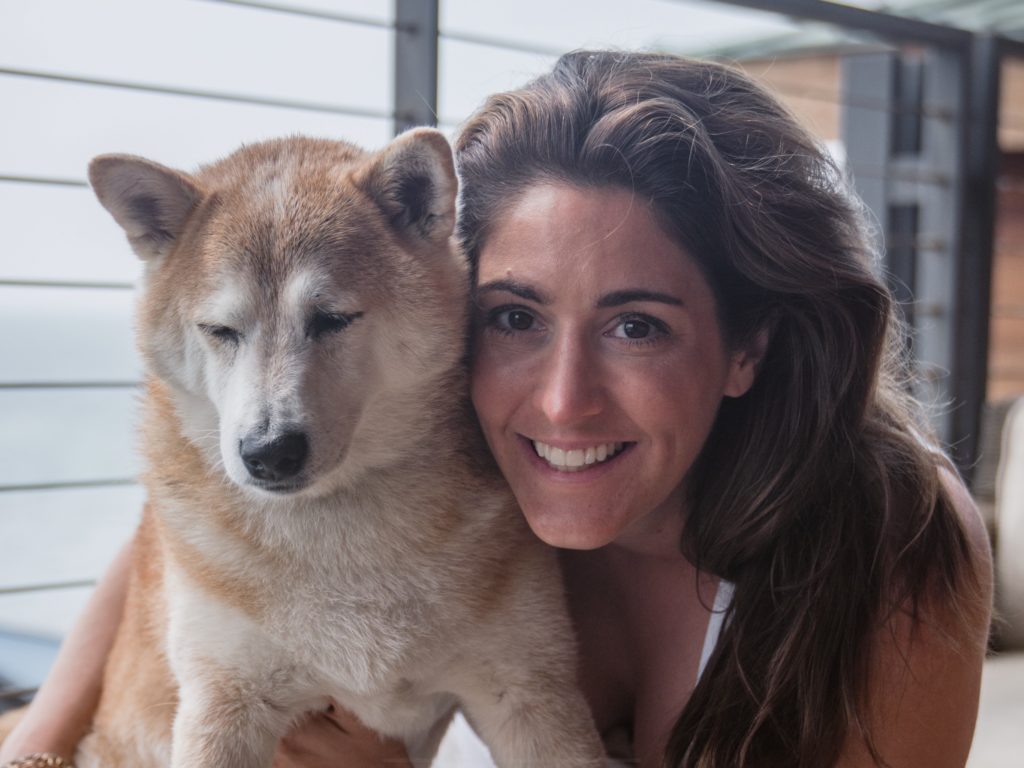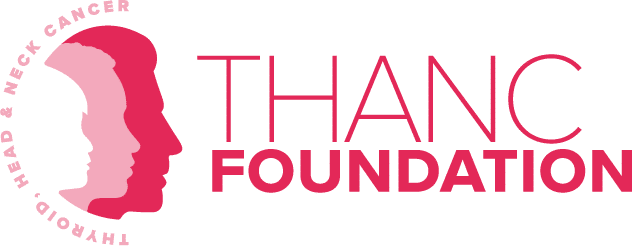
I’m a nurse practitioner, and I’ve been working in medicine since I graduated from The University of Alabama. After completing nurse practitioner school, I moved to New York to start my career as a nurse practitioner. During my first two years in New York, I experienced worsening fatigue, along with additional unexplained symptoms. Around this time, I thought that my problems were a result of chronic stress. One day in the summer of 2019, at the clinic where I worked, I noticed my neck seemed different.
After a quick inspection and a second opinion from people in the office where I worked, we confirmed that there was something on my thyroid. I spoke with the physician I was working with. He ordered an ultrasound of my thyroid, which led to a fine needle biopsy. The ultrasound and fine needle biopsy showed that I had nodules on both the left and right sides of my thyroid. The genetic testing that followed indicated that there was only a 2% chance of cancer. At the time, I was a bit relieved but still did not feel great, so I sought out an endocrinologist I had worked with previously.
I gathered all of my lab results for my initial appointment. My endocrinologist completed his own ultrasound in his office. We spoke at length about what was the best way to proceed and decided that watching and waiting was the best option at the time. I had negative fine needle biopsies, essentially negative genetic testing, and I was of childbearing age. We decided that we’d repeat the ultrasound in six months, but then COVID happened. In total, it took nine to ten months for my follow-up. At that follow-up appointment, he repeated the ultrasound and noticed the appearance of the nodule on the right had changed. The nodule had grown in size and had irregular borders with an abnormal central appearance. The amount of growth and border irregularities did not sit well with my doctor.
It was at that point that we decided it was time to see a surgeon. There was just too much growth in such a short period. The surgeon I saw suggested I have only a right lobectomy instead of a total thyroidectomy. He felt it was best to preserve as much of my thyroid as possible, especially since I had not had children yet.
My surgery was uneventful, and the recovery was easy. I may have a high pain threshold, but I was waiting for complications or more pain that did not happen, which was encouraging. A week later, I went for a post-op follow-up to get the pathology results of my right lobectomy. My surgeon said my scar was healing well. When he reviewed the pathology report, I think it caught us both off guard. It showed that the right lobe was a papillary carcinoma with a follicular variant. My jaw hit the floor. I will never forget the position I was sitting in. It was weird to be the patient when you are normally the provider.
“It was weird to be the patient when you are normally the provider.”
I returned to my hometown of New Orleans to seek a second opinion from a head and neck surgical oncologist. My brother works with this surgeon, so it helped me feel like I had some control in this situation. The surgeon reassured me that I was in the best hands in New York. This was such a relief for me and my family. We determined that a complete removal of all thyroid tissue would be the next best step.
Since I was unsure if I would need radioactive iodine treatment after the rest of my thyroid was removed, I sought the advice of a reproductive endocrinologist. We decided it would be best to do fertility preservation while I still had naturally occurring thyroid hormone. I started the preservation process six weeks after my first surgery. This process, on top of a cancer diagnosis, was stressful. One thing that helped relieve the stress was an oncofertility program that relieves patients of some of the financial burden of fertility preservation.
I completed my egg preservation one week prior to my second thyroid surgery. The second surgery went as smoothly as the first. Again, I was waiting for pain and discomfort, but most of all, I wanted my pathology results. My left thyroid lobe was negative for cancer, and my lymph nodes were all clear. During the procedure, they had to reimplant one or two of my parathyroids. If my surgeon hadn’t told me that, I would have never known!
I hoped that I’d figure out my thyroid replacement medication dose on the first try. Unfortunately, that did not happen. I experienced some weight gain and fatigue after my second surgery. My endocrinologist was very reassuring that it is hard to get the dose right on the first try. Still, I couldn’t have had a better experience, especially during the pandemic. Cancer is scary, even when you come from a professional medical background. This past year was all a roller coaster, as you’d expect.
In the first few weeks after my surgeries, it was a bit jarring to look at my scar. It represented so much — sickness, fear, and the unknown. Now I feel like this scar represents strength, courage, and determination. Like most people, I didn’t want to have a very noticeable scar, so I worked with a dermatologist, who used an injection to decrease the size of my scar. I wear mineral sunscreen daily to help prevent additional scarring. I know that one day it will be a thing of the past.
The thing I struggled with the most was the underlying guilt of having what some people call “the good cancer.” I didn’t have medullary thyroid cancer that required chemotherapy, so why did I still feel guilty? I have had friends go through much worse cancer situations. It was mind-bending, and I had some disbelief. To help manage these feelings and my mental health, I went to therapy and acupuncture weekly. Even with a cancer diagnosis, I couldn’t have asked for a better “worst-case scenario.”
“Now I feel like this scar represents strength, courage, and determination.”
There are days when I’m still in disbelief that I had cancer, especially at age 34 and during a global pandemic. But now we’re on the other side. I am so thankful for the support of my friends and family throughout this. I definitely wouldn’t have made it through this adventure without my fiancée, Josh. This cancer taught me to slow down, prioritize myself, and focus on what’s good for my body. The biggest takeaway I can give is to make sure to advocate for your health. Keep searching until you find someone who can help you figure out why you feel the way you do.
If you have any questions or want to talk to me about your cancer journey, please feel free to reach out at info@thancfoundation.org.


